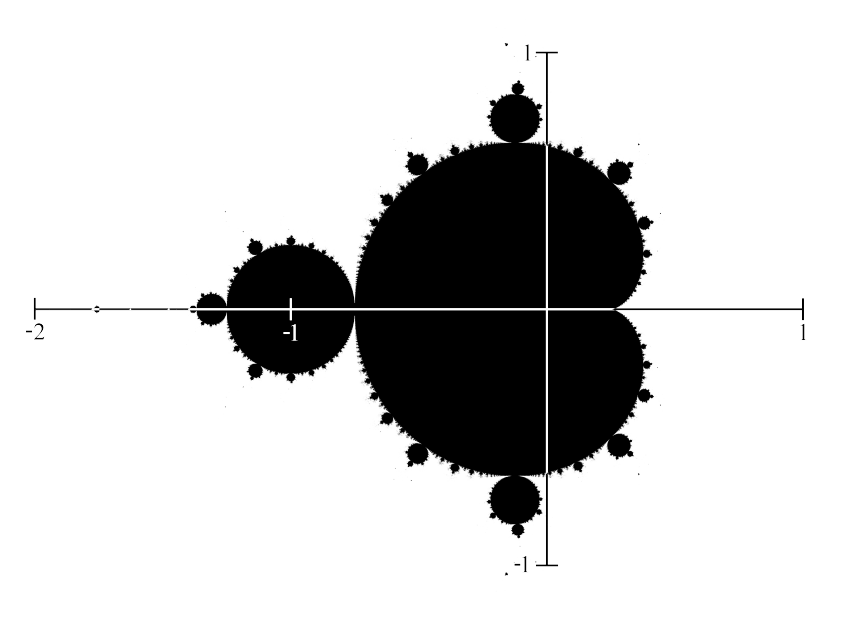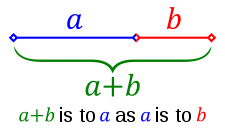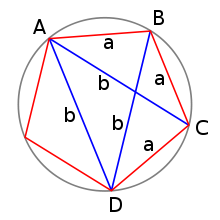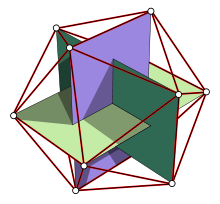Xah's Top 10 Math Wonders
Benoît Mandelbrot, the mathematician who invented fractals, is dead. (1924 to 2010) He died of cancer. Aged 85.

The mandelbrot set is truely a amazing curiosity. I would rank it top 10 math curiosity in my book. If you only know highschool math, you can get a good explanation at Mandelbrot Set Explained (no complex number needed) .
Let's see what other curiosity or such i consider in top 10 in my personal learnings of math in my life. In no particular order:
Fractals
Fractals, Mandelbrot Set Explained (no complex number needed). The amazing part is how such system show self-similarity in such weird way and infinitely deep. Try to ask why.
Math Constants

Mathematical constant. The nature of π, e, Golden ratio .

These are simple to understand, occurs everywhere almost by magic, and their properties, as well as general nature, are elusive. Nobody really understand them. To understand them is like to understand the whole mysteries of math and philosophies of math. For example, on a non-tech aspect, one might say they are not special at all, or why isn't Sqrt[2] special too, or that they are simply arbitrary definitions in a logic system, that our perception of their curiosity, “coincidences”, complexity, are simply one particular aspect of how we perceive a simple system. But these entails the deepest philosophical questions about math.

Cellular Automaton
- Cellular Automaton (For example, Conway's Game of Life , Langton's ant) and any such simple systems (tag system, recursive functions, etc).
- By Stephen Wolfram's A New Kind of Science, we learned that the properties of such system is basically unknown.
- This is especially interesting to pure mathematicians from symbolic logic and algorithmic (computer science) aspects.
- Conway's Game of Life
- Langton's ant
- Notes on A New Kind of Science (Cellular Automata, Computation Systems)
- Great Software for Cellular Automata
Dimensionality and Shape of Space
Dimensionality in math. For example, Flatland. And also shape of space (n-manifold). It's quite amazing that you could have multi-dimensions. Instead of dealing with a single number, you deal with a array of numbers, and in this way, most math generalize to multi-dimensions. Then, many special concepts in higher dimensions arise (such as Orientability), and what happens to many theories in higher dimensions. I hardly understand this. I always wanted to know, a simple list of all such properties and concepts that does not exist in lower dimensions.
See also: Reading Notes on The Shapes of Space, and non-orientable surfaces and projective plane at: Gallery of Famous Surfaces .
Non-Euclidean Geometry
non-euclidean geometry. Not related, but also interesting is Gauss's Theorema Egregium and Euler characteristic (χ = V - E + F), and Gauss–Bonnet theorem, that connects metric aspects of a surface to the topological aspect. I don't really understand this.
Complex Number
Complex number. Perhaps best embodied in this Euler's identity “e^(i*π) + 1 = 0” (but i much prefer E^(I*x) == Cos[x]+I*Sin[x]). Particularly interesting is the Sin function. And the subsequent so-called “complex analysis” or “functional analysis”, where, most real-functions are generalized to the complex number field. 〔see Geometric Transformation on the Plane〕 I always thought, complex numbers are fantastic because they are the algebraic closure, signifying certain ultimate perfection in generalization of real number. However, as i learned by tidbits over the years, complex number is rather just a special construction and isn't that important, useful, or general, in respect to the whole math (For example, compared to dimensionality; symbolic logic, universal algebra, math constants, or linear algebra or calculus).
Group Theory and Universal Algebra, Symbolic Logic
The invention of group theory, and later modern algebra, Universal algebra, that studies structural aspects of numbers.
When i first learned group theory, i find it quite amazing how it captures the number 0 and 1. They are identities by different operations, are the 2 pillars of a number system. From which, you have inverses. Also, it is quite amazing that group theory in some sense, or by definiton, is simply a theory about symmetry! Symmetry is almost a non-descript, visual and perceptual phenomenon, of patterns, but amazingly, when you try to get the essence of it, it is symbols and permutations — group theory! (See: Introduction to Symmetry)
Then, group theory got expanded to modern algebra, of rings and fields. I never find anything attractive about rings and fields or other more complex structures. But i do find the direction of reduction fascinating. Monoids, semigroup, magma, and the whole systematic investigation of their system, for example, universal algebra.
On the other hand, computation leads to studies of algorithms. Even groups and algorithms are both descrete, but they represent i think a deep question in math, not sure if there's a name. Namely: What Is vs How To. And much studies of logic invest these connections, even at philosophical level.
Cantor's Set Theory
Cantor's diagonal argument, that infinite sets can be compared. When i first learned this, it sent a chill down my spine. This is one of the simplest example that demonstrates the power of math. Ask anyone, and they'll tell you that there are twice more numbers than even numbers. It's plain obvious. Anyone who do not believe this is a idiot. Then, show them the argument of matching your left hand's fingers by your right hand's fingers, touching one by one, as a way to show equality of numerousness. They cannot deny this plain logical reasoning. Then, it immediately shows that there are no less even numbers than the integers.
This train of study lead us to the concept of countable infinity, then orders of infinity, the puzzling Continuum hypothesis and the deep Axiom of choice .
Also, it was awe-inspiring, to learn that solutions of polynomials, called Algebraic number, are like twinkles in the sky, and their background, is the immense Transcendental number .
Btw, another item sent a chill down my spine is when i first learned is the Fundamental theorem of calculus. Though, the whole Analysis field of math does not excite me much. In particular anything with derivative or integrals, for example, differential equations.